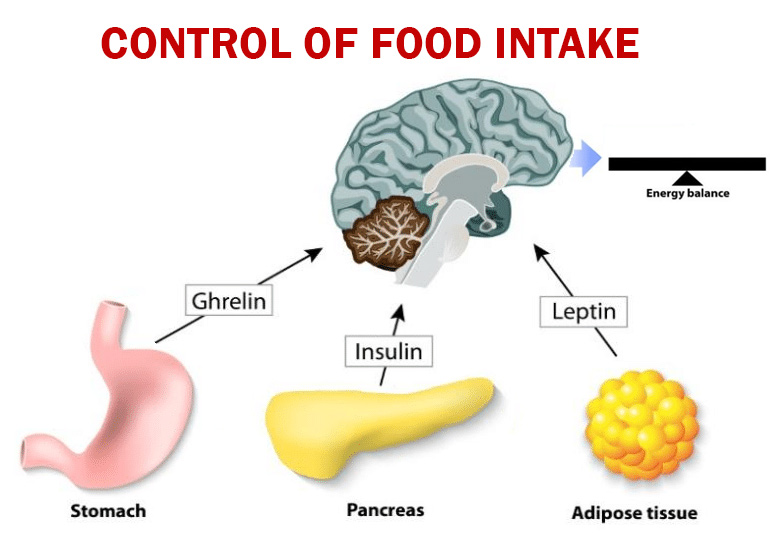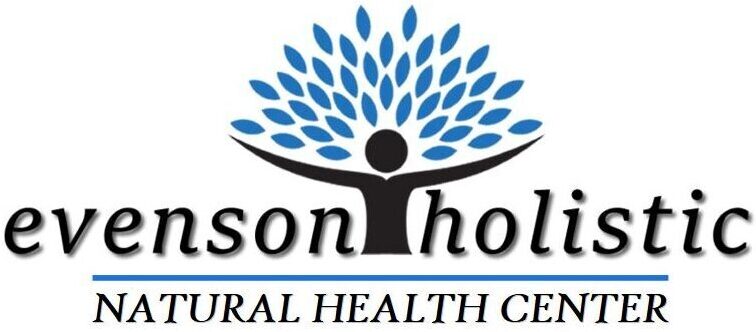
Maintaining a healthy weight and managing appetite can be a complex endeavor. Our bodies rely on a delicate interplay of hormones to regulate hunger, satiety, and energy balance. In this article, we will delve into the roles of three key hormones: leptin, ghrelin, and insulin. Understanding their relationships can shed light on how our bodies regulate appetite, metabolism, and body weight.
Leptin: The Satiety Signal
Leptin, often referred to as the “satiety hormone,” is produced by fat cells and acts as a messenger between our fat stores and the brain. Its primary role is to signal the brain about the amount of stored fat in the body. When fat stores increase, leptin levels rise, sending a signal of satiety and suppressing appetite. In contrast, reduced fat stores lead to lower leptin levels, signaling hunger and promoting food intake. Beyond appetite regulation, leptin also influences metabolism and energy expenditure.
Ghrelin: The Hunger Hormone
Ghrelin, known as the “hunger hormone,” is primarily produced in the stomach. It stimulates appetite and increases food intake. Ghrelin levels rise before meals, signaling hunger, and decrease after eating, indicating satiety. The hormone acts on the hypothalamus in the brain, stimulating the release of growth hormone and regulating energy balance. Ghrelin plays a crucial role in meal initiation and termination.
Insulin: Blood Sugar Regulation and Beyond
Insulin, produced by the pancreas, is best known for its role in regulating blood sugar levels. It facilitates the uptake of glucose from the bloodstream into cells, where it is used as an energy source or stored as glycogen. Insulin also helps suppress the breakdown of stored fat and promotes fat storage. High blood sugar levels stimulate insulin release, while low levels suppress it. Insulin and glucose metabolism are tightly linked, influencing appetite and energy balance.
The Relationships Between Leptin, Ghrelin, and Insulin:
These three hormones are intricately connected, working together to regulate appetite, metabolism, and energy balance. Here are the key relationships:
- Leptin and Ghrelin: Leptin and ghrelin have a dynamic relationship that helps maintain energy balance. Leptin, produced by fat cells, inhibits hunger by suppressing appetite when fat stores are sufficient. It acts on the hypothalamus, reducing the production of neuropeptides that promote food intake. Conversely, ghrelin stimulates appetite and food intake when the stomach is empty. High ghrelin levels increase hunger, while increased leptin levels help reduce ghrelin release.
- Leptin and Insulin: Leptin and insulin influence each other’s actions and share common signaling pathways. Insulin can increase leptin production, and both hormones collaborate to regulate energy storage and expenditure. Leptin can enhance insulin sensitivity, improving glucose uptake and utilization. This interplay between leptin and insulin contributes to the regulation of appetite and energy balance.
- Ghrelin and Insulin: The relationship between ghrelin and insulin is still under investigation. Ghrelin has been found to inhibit insulin release from the pancreas, affecting glucose metabolism. Conversely, insulin can decrease ghrelin secretion, potentially reducing hunger and food intake.
Understanding the intricate relationships between leptin, ghrelin, and insulin provides valuable insights into the regulation of appetite, metabolism, and body weight. Dysregulation of these hormones can contribute to conditions like obesity, metabolic syndrome, or diabetes. As holistic practitioners, we can take a comprehensive approach, integrating dietary and lifestyle interventions, stress management techniques, and individualized treatment plans to support hormonal balance and overall well-being.

In addressing hormonal imbalances and promoting optimal health, holistic practitioners focus on various aspects:
- Balanced Nutrition: A diet that supports hormone balance is essential. Emphasize whole, nutrient-dense foods and minimize processed foods and added sugars. Incorporate a balance of macronutrients, including healthy fats, proteins, and complex carbohydrates. This can help stabilize blood sugar levels, optimize leptin and insulin function, and reduce cravings.
- Regular Physical Activity: Engaging in regular exercise not only helps manage body weight but also has a positive impact on hormone regulation. Physical activity can improve insulin sensitivity, enhance leptin signaling, and reduce ghrelin levels. Find activities you enjoy and strive for a combination of aerobic exercise, strength training, and flexibility exercises.
- Stress Management: Chronic stress can disrupt hormone balance. Incorporate stress management techniques such as mindfulness meditation, deep breathing exercises, yoga, or engaging in hobbies that promote relaxation. Managing stress can help optimize leptin and ghrelin levels and reduce the risk of emotional eating.
- Quality Sleep: Sleep deprivation affects hormone regulation, leading to imbalances in leptin, ghrelin, and insulin. Aim for 7-9 hours of quality sleep each night. Establish a consistent sleep routine, create a sleep-friendly environment, and practice good sleep hygiene habits.
- Individualized Approach: Each person’s hormone balance is unique, and a holistic practitioner takes an individualized approach to address specific needs. They may recommend targeted supplementation, herbal remedies, or other modalities to support hormone balance.
Remember, achieving and maintaining hormone balance is a journey. It requires consistency, patience, and a multifaceted approach. Consulting with a holistic practitioner can provide guidance and personalized strategies to optimize your hormone health.
To wrap it up, the hormones leptin, ghrelin, and insulin play critical roles in appetite regulation, metabolism, and body weight management. Understanding their relationships and how they interact can provide insights into maintaining a healthy balance. By adopting a holistic approach that incorporates nutrition, exercise, stress management, sleep, and personalized strategies, you can support hormone balance and promote overall well-being. Empower yourself to take charge of your health and cultivate harmony among these vital hormones.
Discover the intricate relationship between the hormones leptin, ghrelin, and insulin in regulating appetite, metabolism, and body weight. Learn how these hormones interact and how holistic practices can support hormone balance for optimal health. Explore dietary, lifestyle, and personalized strategies to nurture harmony among these vital hormones.



Leave a Comment